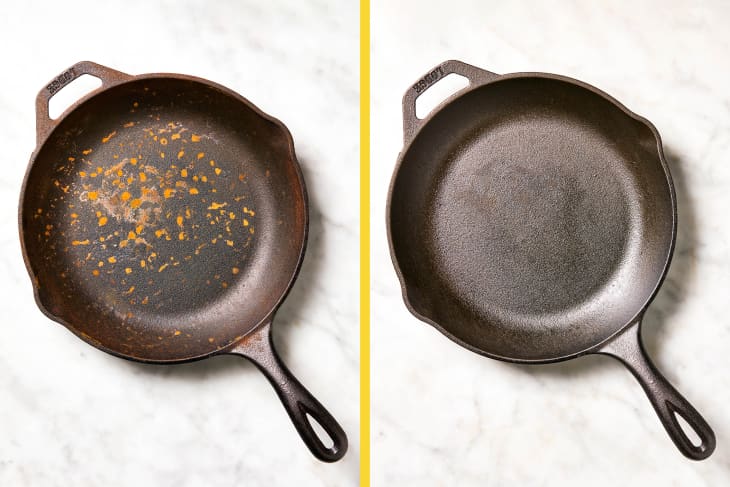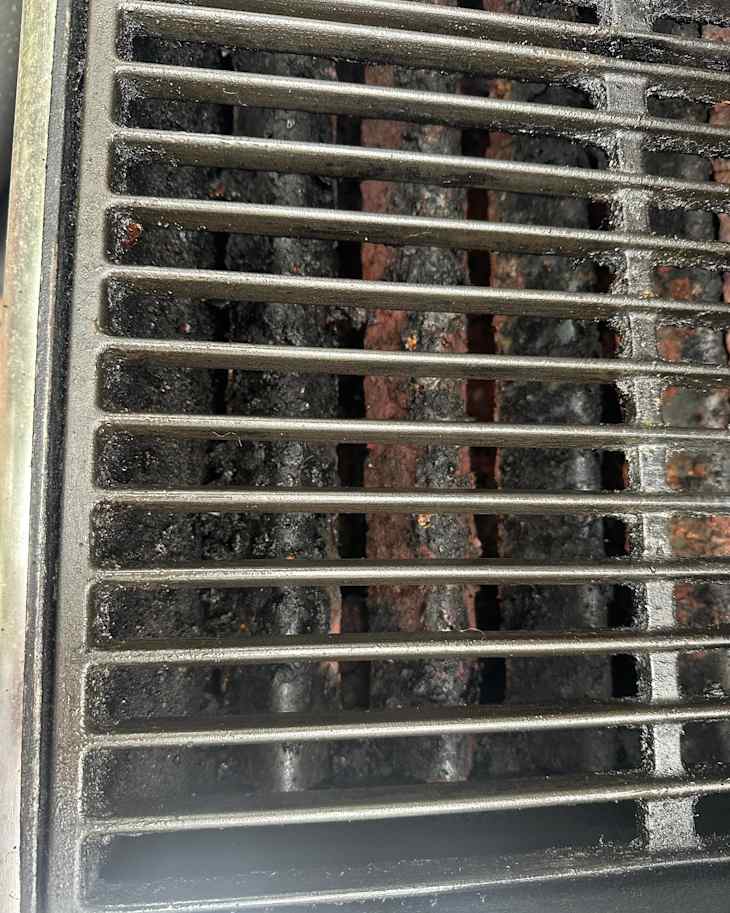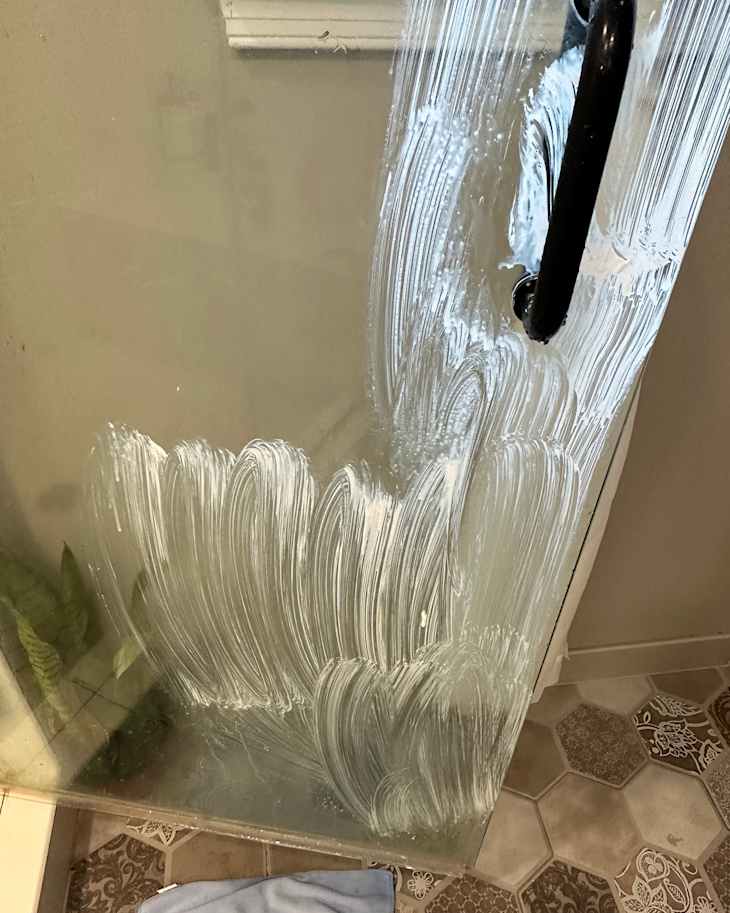

I’m always looking for the best tools and tricks for keeping my kitchen — and the rest of my home — clean and sparkling with minimal effort. So when I discovered this simple, game-changing cleaning tool that can clean dozens of surfaces (for less than $1 each!), I knew I had to put it to the test.
Stainless steel scrubbers are without a doubt one of the strongest, most durable cleaning tools out there. Made of tightly coiled bunches of stainless steel, they can be used for some of your home’s toughest tasks, but that doesn’t mean they should be used on everything. In fact, using a stainless steel scrubber incorrectly can result in damage to what you’re cleaning. Below, learn what they’re best for, how to use them, when to skip them — and see what happened when I put one to the test.
What Makes Stainless Steel Scrubbers So Great?
Stainless steel scrubbers are an affordable cleaning tool that definitely deserves a spot in your cleaning arsenal. But they’re to be used with caution! After all, one of the best uses of stainless steel scrubbers is to remove rust from metal surfaces. But you’ve got to use caution to avoid scratching delicate surfaces.
I was asked to test Scotch-Brite’s stainless steel scrubbers on my seasoned cookware and I was about to roll up my sleeves and get started when I realized that my cast-iron pan is coated with ceramic, which would have been a disastrous situation. While I narrowly avoided a ruined pan, here are the best (and worst!) uses for these supereffective scrubbers.

The Best Uses for Stainless Steel Scrubbers
With a heavy dose of caution and just a bit of elbow grease, a stainless steel scrubber can become your new best friend when it comes to getting rid of buildup of rust, grime, and residue all around the home.
Grill grates
Breathe new life into iron grill grates quickly and easily with stainless steel sponges. My grill grates were completely disgusting, so I put my scrubber to the test. With minimal effort, I was able to restore them to like-new condition.
Stainless steel or cast-iron pots and pans
Gently scrubbing these kitchen staples with a stainless scrubber is a game-changer when it comes to cleaning up after meals. Like grill grates, a stainless steel scrubber can easily remove baked-on food and buildup from a cast-iron pan. Note, however, that you cannot use a stainless scrubber on a cast-iron pot or pan that’s coated in ceramic, like mine (I use Caraway pans), because the steel will damage the ceramic coating — but more on that below.

Shower door buildup
I tested this on my own shower doors, which had heavy soap scum buildup (I’m realizing I should probably clean them more!). I sprayed water to dampen the glass, then applied a shower door cleaner and gently scrubbed the grime using a stainless steel scrubber. I’m happy with the results — it removed all of the soap scum and grime without scratching the glass.
Glass dishes
It can be a helpful tool for cleaning glass kitchenware like casserole dishes and coffee pots, removing tough baked-on food and stains. Use a scrubber with dish soap for a gleaming finish.
What Not to Clean with Stainless Steel Scrubbers
Unlike a sponge or cloth, you can’t use a stainless steel scrubber on every inch of your home. There are some things that should never be cleaned with something this abrasive, according to manufacturers and cleaning experts:
Coated cast iron or non-stick cookware
Any cookware that has any sort of coating (such as nonstick stainless steel or ceramic-coated cast iron) can be damaged from using a stainless steel scrubber. When food particles get stuck on this type of cookware, soaking it in hot water with a bit of dish soap or even baking soda should be sufficient for removing even the toughest grime.
Glass cooktops
Stainless steel scrubbers should not be used on delicate cooktops like glass because it can scratch the surface and generally isn’t necessary. For tough spots on a glass cooktop, try dampening the spot, adding a bit of baking soda or Bar Keepers Friend Cooktop Cleaner, then gently scrubbing with a sponge.
Ceramic or porcelain
Like with many other materials, stainless steel scrubbers can scratch gentle surfaces like porcelain and ceramic. That makes them poor bathroom companions overall, as they should not be used for countertops, toilets, or sinks.
